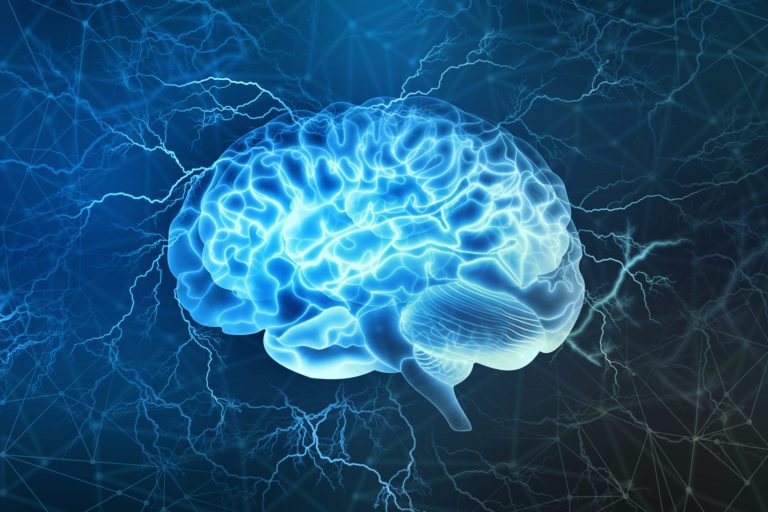For years, the primary theory surrounding the cause of Alzheimer’s disease has focused on the accumulation of abnormal proteins, particularly amyloid beta (Aβ42), which form amyloid plaques in the brain. These plaques were thought to be a key driver of neurodegeneration. However, new research from the University of Cincinnati challenges this longstanding belief, suggesting that the presence of amyloid plaques may not directly lead to Alzheimer’s in most individuals. This study opens new avenues for understanding the disease and potential treatments.
The Amyloid Hypothesis: A History
The amyloid hypothesis has dominated Alzheimer’s research for decades. According to this theory, amyloid beta proteins, specifically Aβ42, clump together in the brain, forming plaques that disrupt communication between neurons, leading to the cognitive decline seen in Alzheimer’s patients. Researchers long believed that the presence of these plaques was not only a hallmark of the disease but a direct cause of the neurodegeneration that follows.
Amyloid plaques are often found in the brains of those diagnosed with Alzheimer’s, making them a prime suspect in the search for a cause. As a result, drug development over the past several years has focused on reducing or eliminating these plaques in the hope of slowing or halting disease progression.
A New Perspective on Amyloid Plaques
Recent findings from the University of Cincinnati have cast doubt on the amyloid hypothesis. In a study led by Dr. Alberto Espay, professor of neurology, researchers discovered that while amyloid plaques are present in the brains of many older individuals, the majority of these people do not develop Alzheimer’s disease.
“We noticed that most of the population with amyloid plaques does not develop Alzheimer’s,” said Espay in a statement. “By the age of 85 years, only one fifth of those with amyloid plaques develop Alzheimer’s disease.”
This data has led researchers to reconsider the role that amyloid plaques play in Alzheimer’s disease. If the plaques alone are not enough to cause the disease in most people, then other factors must be at play. Espay and his team suggest that the brain’s ability to clear or manage these abnormal proteins might be more critical to disease progression than their mere presence.
The Role of Protein Regulation in Alzheimer’s
In light of this new understanding, researchers are turning their attention to how the brain regulates proteins and maintains cellular health. One area of focus is on protein homeostasis, the balance of protein production, folding, and degradation that ensures proper cellular function. In Alzheimer’s, this balance may be disrupted, leading to the accumulation of abnormal proteins like amyloid beta.
Boosting the brain’s ability to manage these proteins could be key to slowing the progression of Alzheimer’s. Instead of solely focusing on removing amyloid plaques, new therapies might aim to enhance the brain’s natural protective mechanisms.
One promising avenue involves increasing the production of certain proteins that help break down amyloid beta before it can form plaques. These proteins, such as neprilysin and insulin-degrading enzyme, play a critical role in maintaining protein balance in the brain. By boosting their levels or activity, researchers hope to prevent the buildup of toxic proteins and protect brain cells from damage.
A Shift in Therapeutic Approaches
The findings from Espay’s study have significant implications for the future of Alzheimer’s research and treatment. For years, pharmaceutical companies have poured resources into developing drugs that target amyloid plaques, but many of these drugs have failed to show significant clinical benefits.
With this new understanding, researchers may begin shifting their focus toward therapies that promote overall brain health rather than simply reducing amyloid plaques. By targeting the processes that regulate protein homeostasis, they may be able to slow or prevent neurodegeneration without relying solely on the removal of plaques.
Some researchers are also investigating ways to enhance the brain’s natural defenses against oxidative stress and inflammation, two factors that are closely linked to Alzheimer’s disease. Chronic inflammation in the brain can exacerbate the accumulation of abnormal proteins, so reducing inflammation could be another way to protect neurons and slow disease progression.
Potential for Early Detection and Prevention
The study’s findings also have implications for early detection and prevention. If the presence of amyloid plaques does not necessarily lead to Alzheimer’s, then identifying other biomarkers of the disease could become increasingly important. Understanding how the brain regulates proteins in healthy individuals versus those with Alzheimer’s could provide new clues for early intervention.
Researchers are also investigating lifestyle factors that might influence protein regulation and brain health. Regular exercise, a healthy diet, and mental stimulation have all been shown to reduce the risk of Alzheimer’s, possibly by enhancing the brain’s ability to clear harmful proteins. Future prevention strategies may focus on promoting these activities as a way to support protein homeostasis and protect against neurodegenerative diseases.
Conclusion: A New Direction for Alzheimer’s Research
The University of Cincinnati study marks a significant turning point in Alzheimer’s research. While amyloid plaques have long been considered the primary culprit behind the disease, this new research suggests that other factors, such as the brain’s ability to regulate and manage proteins, may be just as important.
This shift in focus has opened the door to new therapeutic approaches that emphasize boosting the brain’s natural defenses against abnormal proteins rather than simply targeting the plaques themselves. By promoting overall brain health and protein homeostasis, researchers hope to slow the progression of Alzheimer’s and improve outcomes for millions of patients worldwide.
As Alzheimer’s research enters this new phase, the hope is that a deeper understanding of the disease’s underlying mechanisms will lead to more effective treatments and, ultimately, a cure. For now, the discovery that amyloid plaques alone may not cause Alzheimer’s offers a promising new direction for scientists and doctors alike.
